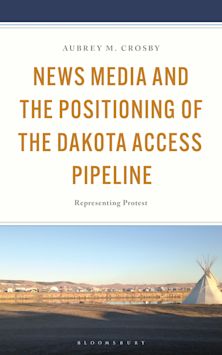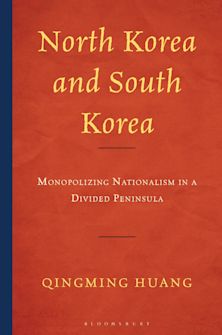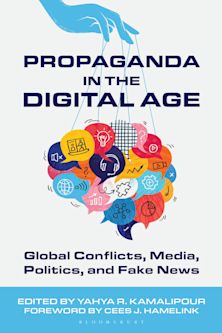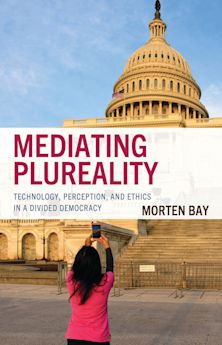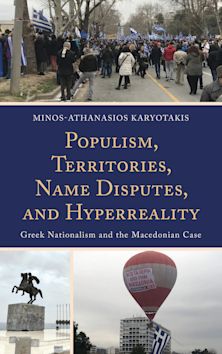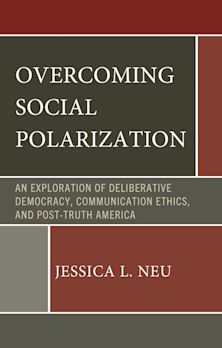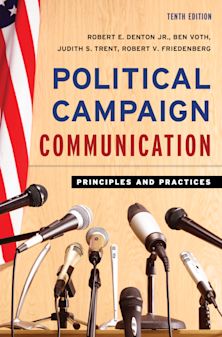- Home
- ACADEMIC
- Communication Studies
- Political Communication
- Parasocial Politics
Parasocial Politics
Audiences, Pop Culture, and Politics
Jason Zenor (Anthology Editor) , Gregory Adamo (Contributor) , William Ashton (Contributor) , Carole V. Bell (Contributor) , Bryan J. Carr (Contributor) , Carly T. McKenzie (Contributor) , David Edmund Moody (Contributor) , Cynthia Nichols (Contributor) , Alison N. Novak (Contributor) , Laura Osur (Contributor) , James C. Rhoads (Contributor)
Parasocial Politics
Audiences, Pop Culture, and Politics
Jason Zenor (Anthology Editor) , Gregory Adamo (Contributor) , William Ashton (Contributor) , Carole V. Bell (Contributor) , Bryan J. Carr (Contributor) , Carly T. McKenzie (Contributor) , David Edmund Moody (Contributor) , Cynthia Nichols (Contributor) , Alison N. Novak (Contributor) , Laura Osur (Contributor) , James C. Rhoads (Contributor)
You must sign in to add this item to your wishlist. Please sign in or create an account
Description
The popularity of cable news, satire, documentaries, and political blogs suggest that people are often absorbing and dissecting direct political messages from informational media. But entertainment media also discusses the important political issues of our time, though not as overtly. Nonetheless, consumers still learn, debate, and form opinions on important political issues through their relationship with entertainment media. While many scholarly books examine these political messages found in popular culture, very few examine how actual audiences read these messages. Parasocial Politics explores how consumers form complex relationships with media texts and characters, and how these readings exist in the nexus between real and fictional worlds. This collection of empirical studies uses various methodologies, including surveys, experiments, focus groups, and mixed methods, to analyze how actual consumers interpret the texts and the overt and covert political messages encoded in popular culture.
Table of Contents
Jason Zenor
Part I: Entertainment, Celebrity, and Politics
Chapter 1: Reading the President: Audience Reception of The West Wing, Jason Zenor
Chapter 2: Studying Audience Subjectivity: Reactions to Death of a President, James C. Rhoads
Chapter 3: The Wire and Urban Life: Baltimore Responds to its Image, Gregory Adamo
Chapter 4: Celebrity Persuasion in the Political Arena: A Study of Message Effects on Young Voters’ Political Opinions in the 2008 Election, Cynthia Nichols and Carly McKenzie
Part II: Fandom, Fantasy, and Real Politics
Chapter 5: Storytelling through World-Building: Audience Perceptions of Science Fiction Television, Laura Osur
Chapter 6: Are You a Lebowski Achiever? The Fans of the Movie The Big Lebowski, Jungian Synchronicity, and the Iraq War, William Ashton
Chapter 7: The Dark Knight of the Soul: Netnographic Exploration of Religion, Politics and Batman, Bryan J. Carr
Part III: Millenials, Diversity, and Entertainment
Chapter 8: Millenials, Citizenship, and How I Met Your Mother, Allison N. Novak
Chapter 9: Talking Racial Politics Online: The Progressive Potential of Television Dramas in Postracial America and Parasocial Contact, Carole V. Bell
Chapter 10: ‘Nigga You Gay!’ The Post-Racial Millennial Generation’s Reception of The Boondocks, David Moody and Jason Zenor
Product details
| Published | 21 Oct 2014 |
|---|---|
| Format | Ebook (Epub & Mobi) |
| Edition | 1st |
| Extent | 204 |
| ISBN | 9780739183908 |
| Imprint | Lexington Books |
| Illustrations | 1 Table |
| Publisher | Bloomsbury Publishing |
About the contributors
Reviews
-
Parasocial Politics offers scholars and students of media audiences a well-rounded collection of original research studies from a variety of different methodological perspectives. It avoids the stale debates about audience autonomy by focusing on the phenomenology of audience activity—the ways in which audiences leverage their media experiences to help navigate their social and political world. This collection makes a valuable contribution to the field of audience studies and popular culture by skillfully linking audience interpretations of popular media to forms of political, racial, and religious identity.
John Sullivan, Muhlenberg College
-
Jason Zenor has compiled an impressive and very timely collection of studies packed with ideas about the potential for entertainment—and entertainers—to influence political opinion. Each chapter offers insight into the ways we understand and communicate political meanings that are embedded in the media products we consume. This book will, I hope, inspire many more research projects on this important topic.
Patricia Phalen, George Washington University












